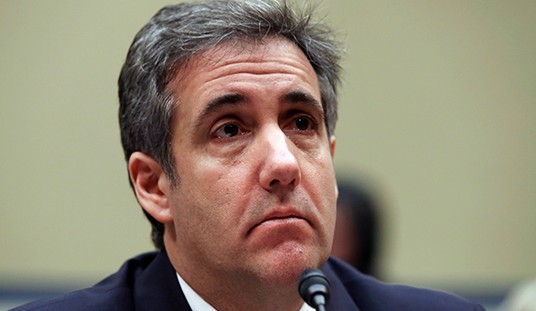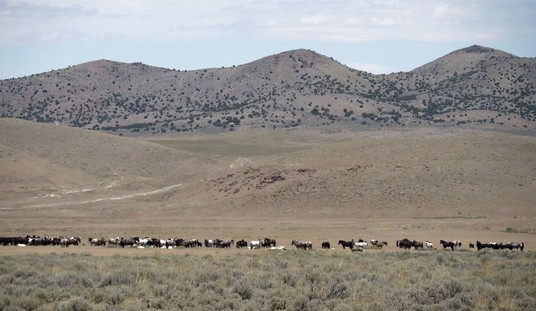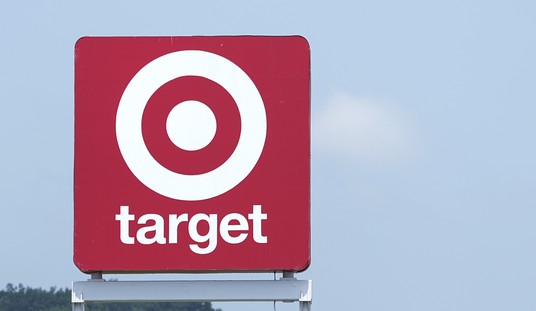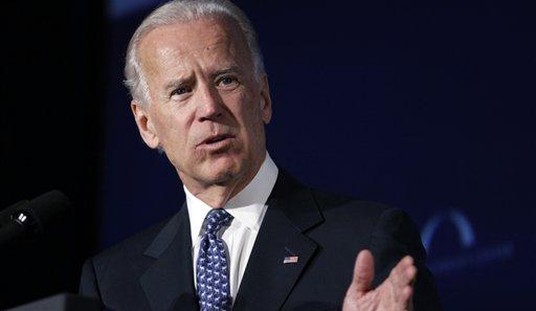
While we are still a few months from the start of the voting and the need to get this down to a 2 or 3 candidate race (as it should be by early/mid March), time is already running short for the oversized 2016 GOP field to contract and winnow out at least 6 or 7 of the dark-horse candidates. For the good of the party, given the sprawling size of the 14-candidate field (originally 16, before Rick Perry and Scott Walker honorably bowed out), people need to step aside and stop draining money, polling support and TV time away from center stage, and let the voters decide among the survivors who have a real chance of soldiering on through the spring. Along the way, some interesting and/or qualified candidates who might have gone further in another year – Chris Christie, John Kasich, even onetime poll frontrunners Jeb Bush and [mc_name name=’Sen. Rand Paul (R-KY)’ chamber=’senate’ mcid=’P000603′ ] – may fall by the wayside. So may two candidates who actually did go further in past years: Rick Santorum and Mike Huckabee. But as that winnowing process kicks into gear, conservatives and Republicans ought to give another long look at the best candidate in either party’s 2016 field: Louisiana Governor Bobby Jindal.
Jindal is both the youngest and most experienced candidate in the race, the one with the best record of conservative accomplishment, the best and most detailed conservative platform, and the proven character and ability to lead the nation in crisis and to turn policy proposals into actual results. He is both the best potential President in the 2016 GOP field and a better general election candidate than any of the alternatives who might be considered more conservative or more anti-establishment. No candidate is perfect, but Jindal deserves to be among the finalists in this race, and should certainly be a significant part of the next Republican Administration.
Experience
Ideas don’t run for President, people do. The case for Jindal as the 45th President of the United States begins with his broad, varied and highly relevant experience. While Jindal is the youngest of the 18 candidates remaining in the two parties’ fields, he is also the most experienced. Of five types of relevant experience for the presidency (executive experience, political leadership experience, national security experience, military combat service, and private sector business experience), no candidate left in the field has all five (Rick Perry did) – then again, only three of our Presidents can plausibly lay claim to all five (George Washington, Andrew Jackson and George H.W. Bush). But nobody still running can beat Jindal’s preparation for the varied and unpredictable demands of the presidency and for overcoming the specific obstacles Washington throws up in the path of a conservative reformer.
To start with, the Presidency is an executive job, and Jindal’s been a two-term Governor, an executive (unlike Marco Rubio or Ted Cruz, who have little or no executive experience) of a public entity (unlike Donald Trump, Carly Fiorina or Ben Carson who have none in the public sector) and the man in charge (unlike Hillary Clinton, who has run an executive Department (badly) but never been the person on whose desk the buck was supposed to stop for good). As for political leadership, Jindal was a successful enough to win re-election in 2011 with almost 66% of the vote, the largest margin of any candidate for Governor in the 40-year history of Louisiana’s jungle primary system. On his watch, Republicans gained their first majorities in the Louisiana state House and Senate since Reconstruction in 2010 and 2011, respectively. They hold them still, and likely will continue to do so even if Jindal’s arch-rival in the Louisiana GOP, [mc_name name=’Sen. David Vitter (R-LA)’ chamber=’senate’ mcid=’V000127′ ], fails to hold the Governor’s mansion on November 21. Jindal’s approval ratings in his second term have not been great, but that is very largely a symptom of the fact that he has continued to fight for tax reform, spending restraint and other reforms rather than just sit on his political capital and let it rust.

The Master of Disaster
As I’ve discussed in detail earlier, even before we get to what Jindal stands for, he has faced an extraordinary series of crises and challenges as Governor, and handled them masterfully: the post-Katrina rebuilding of New Orleans and (among other things) its shattered school system; Hurricanes Gustav and Ike; the 2010 BP oil spill; and most recently the end of the long boom in energy prices and production. I’ve covered the hurricanes already, as well as his role as a Congressman during the crisis of Katrina itself; on the oil spill, as Reihan Salam explained at the time, Jindal dove into the breach when the federal government, under Obama’s leadership, was stuck in the mud:
With his data-rich calls for the creation of sand booms and other coastal defense measures, and his very visible efforts to pressure the federal government to take more aggressive action, Jindal has come to embody the response to the oil spill…Jindal is playing the role of governor-as-action-hero…Jindal is filling a psychological need: if nothing else, many Louisianans feel helpless in response to the slow-motion disaster, and the governor is giving voice to their anger and their desire to take action—any action—in defense of their way of life.
It was this active, hands-on approach to crisis management that drew plaudits at home during the spill. Jindal’s most famous fight with the paralyzed Obama Administration during the crisis was his effort to send barges out to clean up the spill, which were blocked by federal authorities. As Jindal described his experience in both Katrina and the BP spill, “Bureaucracies fail us and then they make it illegal for us to try to work in their place.”
In The Trenches of Reform
Time and time again, Jindal has shown that he knows how to keep a government running under the worst of conditions, how to get more out of his subordinates, and how to hold them accountable. His Administration in Louisiana – which he kicked off by passing long-overdue ethics reforms through a reluctant Democrat-controlled legislature – has been remarkably clean, considering the notoriously scandal-tarred history of Louisiana politics.
Jindal’s executive and governmental experience runs broader and deeper than just the Governorship. He developed his Medicare premium-support plan – later a key to the Ryan budget that would play an outsize role in elevating [mc_name name=’Rep. Paul Ryan (R-WI)’ chamber=’house’ mcid=’R000570′ ] to Speaker of the House – as a 22-year-old Congressional intern. He was appointed at age 24 in 1996 to run the Louisiana Department of Health and Hospitals, a state Cabinet position that consumed 40% of the state’s budget. The New Orleans Times-Picayune summarized the challenge at the time:
One major source of the mess is the Medicaid program, which the department administers and which Louisiana eagerly mined for money in recent years. Ultimately, it became the largest slice of the state’s annual budget, ballooning from less than $1 billion to more than $4 billion in just five years. When the feds caught on to the abuse and moved to cut off the cash flow in 1995, the department was plunged into a budget-cutting crisis that continues to this day.
At the same time, the department’s credibility has been under fire amid news reports of fraud and favoritism. And even if it were trouble-free, the department is a dauntingly large bureaucracy to master, with 13,000 employees and a budget of $4 billion – making it the second largest enterprise in the state, after Entergy Corp.
It proved the first of Jindal’s success stories:
During his tenure at DHH, Mr. Jindal revitalized Louisiana’s Medicaid program by
*Rescuing it from a $400 million deficit
*Posting three consecutive budget surpluses exceeding $220 million
*Lowering Medicaid spending three years in a row and
*Establishing nationally recognized programs.In addition, Mr. Jindal was able to produce positive health outcomes while controlling costs. For example, even as the department’s budget was cut by 25 percent and the number of employees reduced by 1,000, Louisiana moved from 37th to 3rd best nationally in health screenings for children, increased its childhood immunizations from 50 percent to nearly 90 percent and offered new and expanded services to elderly and disabled persons.
Jindal’s expertise drew the attention of Washington, and in early 1998, he was appointed Executive Director of the National Bipartisan Commission on the Future of Medicare – a commission that would, had it not been for the scandals that then engulfed the Clinton Administration, likely have seen its blueprints for entitlement reform (including Jindal’s Medicare premium-support idea) become the centerpiece of a major bipartisan effort. Returning from DC to Lousiana later that year, he was appointed the youngest-ever head of the Louisiana university system.
After working inside the state system, he worked inside the federal system, as a senior policy advisor in the Department of Health and Human Services early in George W. Bush’s tenure (Jindal was involved in the early stages of the development of the Medicare Part D prescription drug plan, but has since said that he dislikes the plan that was ultimately passed because it departed too far from his premium-support model). But he also has the experience, unlike anyone in this field other than John Kasich, of serving not only as a Governor but also as a Member of Congress. Jindal wasn’t in Congress very long (two terms in the House), but a Washington Post analysis in August found that he was the most efective legislator of any of the potential presidential candidates at the time:

Now, this comparison is admittedly a bit biased by the fact that Jindal was there at a time when the GOP held the White House and both Houses of Congress, and much of his legislative record pertained to popular bipartisan measures for Hurricane Katrina relief. Still, it illustrates – as does his time inside the state executive branch – that Jindal understands how the sausage is made on Capitol Hill, and can enter the White House fully prepared for its Byzantine ways.

Why Experience Should Matter In 2016
Why should conservative voters consider Jindal’s experience important, especially after Barack Obama proved that general election voters just don’t care about experience the way they used to (or at least, not for a progressive candidate)? Partly because of the usual reasons why we should want a President who is prepared for the job; partly because experience gives us a record to judge, to see which candidates are serious about putting deeds behind their words. But I submit that there is an even more important reason particular to where the Republican Party and the conservative movement are entering 2016.
Much of the pent-up frustration of conservatives over the past four years arises from the fact that we have had control of the House, and now the Senate, and seem to be unable to do anything with it. And all the while, our Congressional leaders assure us that they are doing all they can do, and even that the budget deals they deliver are actually good. They told us the Corker bill to allow a vote on the Iran deal was a good idea – even Senators Cruz, Rubio and Paul voted for it. And the procedural, budgetary and behind-the-scenes shenanigans on the Hill are really only the tip of the iceberg of the many ways that institutional Washington – the CBO, the Pentagon, the IRS, the DOJ Civil Rights Division, the Education Department, the courts, etc. – conspire to make any sort of real reductions in the size and scope of the federal government, and in the federal government’s financing and protection of liberal-progressive causes, prohibitively difficult.
In other words, a conservative president needs to be prepared from Day One to know where the sources of resistance are, to spot the traps, to understand the system well enough to control it and bend it to his will. This is particularly why political novices like Ben Carson and Donald Trump would be eaten alive by the system. But it’s also why Jindal has an advantage over even smart, serious conservatives like Cruz and Rubio, who haven’t labored in the bowels of the system as long as Jindal and have yet to match his record of conservative governance and policy innovation. In Cruz’s case, that can manifest itself as not knowing when to say “yes” – Cruz has fought with admirable principle against all sorts of bad deals in Washington, but you don’t govern only by saying no, and we have yet to see what Cruz can or would do to turn his principles into policy. For Rubio, it’s the opposite problem – while he made his name as Florida House Speaker fighting his own party’s governor (Charlie Crist), in Washington he’s still trying to escape the shadow of the “Gang of Eight” immigration deal in which he got fleeced by Chuck Schumer. Neither Rubio nor Cruz has the sort of disabling lack of knowledge, experience and policy depth that plague Carson and Trump; both are solid candidates, credible nominees, and worthy second choices to Jindal. But Jindal is the class of the field in this regard; why should conservatives settle for less than that?

Jindal’s Principled and Practical Conservatism
For conservatives, of course, all the experience in the world is of no use if you’re rowing the ship of state in the wrong direction. But throughout his career, Jindal has been the conservative’s conservative – not just in word but in deed, proving to the doubters that a rigorously conservative philosophy need not be the sole province of posturing “no” votes and impractical think-tank papers – it can, as it was by Ronald Reagan, actually be put into practice by a chief executive.
Taxes and Spending
Jindal’s record – and the hard, year-in-year-out fights it has required – starts with taxes and spending. In 2008, Jindal backed the largest tax cut in Louisiana history, rolling back a series of 2002 tax increases. From the very beginning, the cuts were controversial, because Louisiana’s tax base depends on highly volatile oil revenues:
Severance taxes, mostly from oil and gas, made up just over 8 percent of state tax revenue in 2007, according to Census Bureau data, much less than Alaska’s 64 percent, but higher than Texas’ 6.9 percent. The total take, including royalties and leases from oil, gas and other resources, accounts for just under 17 percent of the Louisiana budget.
Jindal’s long-term solution to the perennial budget crises – a plan to replace the state income tax with a less volatile sales tax system on the Texas model, taking greater advantage of the New Orleans tourism industry – was unfortunately rejected by the GOP-controlled legislature in 2013 (Jindal has gotten a lot passed through the legislature; this failure may be a mark against a great record but also illustrates his willingness to spend political capital pushing for dramatic reforms even when they are less than a sure thing). As Leon Wolf has noted, this has left Jindal in an annual battle to deliver a balanced budget and resist a chorus of demands for tax and spending hikes, one he has won year after year:
These stories crop up every year in Louisiana and have several features in common: 1. an observation that the state faces a budget shortfall, 2. complaining from various Republicans indicating that revenues (read: taxes) should be raised 3. anecdotal evidence that previous years’ budget cuts have wrought terrible hardships on the people of Louisiana. They always conveniently omit 1. Actual data 2. The context of previous years which indicates that this truly is another instance of same song, different verse.
Allow me to rectify the first of those deficiencies with some actual data about the effect of Jindal’s budgetary approach, which has remained constant throughout virtually his entire tenure. Weak-kneed pundits (and state legislators’) favorite word for Jindal’s budgetary approach is “irresponsible,” primarily because Jindal refuses, out of hand, to consider tax increases to make up shortfalls. There is absolutely no reason given for why this is “irresponsible” other than the ipse dixit of whatever author is playing useful idiot for the media at that point. On the contrary, people who are paid to rate the fiscal responsibility of state governments for the purposes of evaluating government debt have been consistently bullish on Jindal’s budgetary approach. Moody’s has raised the state’s credit rating from A2 (middle of the medium risk tier) when Jindal took office to Aa2 (middle of the low risk tier) today. Standard and Poor’s has also upgraded Louisana’s credit rating twice since Jindal took office. Fitch has likewise improved Louiana’s credit rating twice. When Governor Jindal took office in 2008, Louisiana had one of the worst credit ratings in the entire country, and it now finds itself in about the middle of the pack. The people who are paid to evaluate Louisiana’s budget practices from fiscal standpoint clearly view Jindal’s budgetary approach to be sound, especially compared to those of his predecessors.
A Cato Institute study noted that Jindal actually reduced total government spending in Louisiana over his tenure in office, a nearly unheard-of thing in today’s America even compared to other Republican Governors:

Some of that was due to the fact that spending was still artificially inflated by Katrina relief spending in 2007, but as we saw in DC after the 2009 stimulus, it’s all too easy for politicians to get and stay addicted to “temporary” spending, and – as this chart from his campaign neatly summarizes – Jindal reduced the state workforce by 30,000, a long-term reduction in structural expenses:

The economic results have been positive. Leon again:
The reality is that Lousiana has added a ton of jobs since Jindal took office – in fact, since 2008, they are the number 5 state in the country for job growth. Per capita income has also actually grown in Louisiana by 15% over the last 6 years, which far outpaces the national trend. There are more jobs in Louisana now than there have been since 2008, and those jobs pay better. Louisiana’s GDP is growing at the third-fastest rate in the whole country, indicating that private sector health is remarkably strong. The main factor driving the unemployment rate is that Louisiana has experienced 7 straight years of population growth since Jindal took office, which would seem to suggest that from a public services and economic standpoint, Louisiana might not be the hellhole that the fainting brigade would have you believe.
On that last point, note that Louisiana was facing an outmigration trend for 25 years before Jindal took office. The state’s voters may be worn out with the pace of Jindal’s reforms, but they have voted with their feet to embrace the results. A Bloomberg analysis found that, compared to other governors then in the race, Jindal had the best record of reducing poverty compared to the national average, the second best record in job growth, the second best record in high school graduation rates, and the fourth best record in business growth – the only negative being that the population and workforce have grown even faster than the new jobs, which accounts for the stubbornness of state unemployment:

The 2015 budget cycle, Jindal’s last, was more challenging than ever with oil revenues dropping and nearly no room left to cut in the state budget. Jindal held the line again on new spending, vetoed an internet sales tax, and used every source of short-term funding available to avoid damaging long-term tax hikes, although he was forced to accept some new sales and use taxes (e.g., a cigarette tax hike) to make up the difference. The resulting state tax burden, however, is still significantly lower than when he took office, which is one reason why he’s earned a pass from the Americans for Tax Reform scorecard.
Fighting The Law, Even When The Law Won
Jindal has stood for both conservative principle and conservative practice, in ways both substantive and symbolic, across many other areas beyond the budget, often taking on difficult uphill fights. He refused to form a state Obamacare exchange or expand Medicaid, choices many other Governors are now wishing they had made. In the immediate aftermath of the 2012 election, he promoted a new idea – defusing fights over government-funded birth control by selling the birth control pill over the counter to reduce its cost – which has since been adopted by many Republican candidates and provided the blueprint for [mc_name name=’Sen. Cory Gardner (R-CO)’ chamber=’senate’ mcid=’G000562′ ]’s victory in Colorado over the “War on Women” campaign waged by Mark Udall.
Jindal has also stood for a responsible conservatism against some of the odder fringe movements that try to attach themselves to the movement – such as standing up for vaccinations. On the trail and in clever web videos, he’s relentlessly mocked Donald Trump as an unserious clown show who risks squandering a once-in-a-lifetime opportunity to elect a principled conservative.
And Jindal has been willing to go down fighting the system. Some of Jindal’s most significant legislative and policy reforms have also illustrated the extent to which the system stacks the deck against conservative reformers if they lack the powers that the Presidency alone can deliver, powers he has sometimes had arrayed against him in the Statehouse. Thus, it’s worth counting in his favor the battles he has taken on and won in the political arena, only to have them snatched away in the courts (state Supreme Court Justices in Louisiana are elected, so Jindal has been unable to affect the composition of the Louisiana Supreme Court with appointments):
[C]ity schools as a whole were among the worst-performing in the state before the disaster.
Since the state took over most schools post-Katrina, that is changing. Recovery School District students, including charter and traditional campuses, posted their fourth consecutive year of improvement last year. The proportion of students scoring at grade level or above grew to 48 percent in 2011 – more than double the percentage in 2007.
That progress has come as most city schools became public charter schools, a concept that the governor’s legislation would expand statewide.
Patrick Brennan at National Review described the reform package as “smart, comprehensive, and innovative, representing the best of conservative thought on education.” Naturally, the Obama Administration and the teachers unions reacted harshly, with DOJ suing Jindal to block the school choice provisions, and the Louisiana Supreme Court striking down a significant part of the reform program on state constitutional grounds.
-Passing a landmark pension-reform bill in 2012 that converted the state pension system to a defined-contribution model; this, too, unfortunately was spiked by the Louisiana Supreme Court.
–Withdrawing Louisiana from Common Core, which also was blocked by the Louisiana Supreme Court.
-Defunding Planned Parenthood after the now-notorious videos, a step that has since been enjoined by a federal court (Planned Parenthood already does not perform abortions in Louisiana). Jindal countered protests by playing the videos on a large screen in front of the Governor’s Mansion.
–Signing a pro-religious-liberty executive order, which naturally prompted an ACLU lawsuit, which remains ongoing.

A Conservative Reform Platform
Jindal isn’t just running on record and rhetoric; he’s also running on the most detailed policy agenda of any candidate in the race. Early last year, he rolled out a thorough alternative to Obamacare – a distinctly better and more comprehensive plan than anything produced by his rivals, and on which none of his opponents has yet taken up his challenge for a one-on-one healthcare debate. He’s proposed a forward-looking energy plan, a pro-growth tax plan that would abolish the corporate tax and slash rates, a choice-based education plan modeled on his Louisiana reforms, a plan to rebuild and reorient our national defense, and a plan to crack down hard on “sanctuary cities” that try to nullify federal immigration law. Like Rubio and Cruz, Jindal is a son of immigrants who understands both the immigrant experience and the American Dream; he has been insistent that with the blessings of immigration comes a responsibility to assimilate into American culture. Jindal’s record in Louisiana demonstrates vividly that he will go to the mat for all these proposals.

Character
At the intersection of Jindal’s ideas and his experience sits the man’s character. Lots of people stand for cutting spending; Jindal has taken the slings and arrows that come with actually sitting down with a budget and removing from it things that particular people will miss and be angry about, with the attendant cost to his popularity. The willingness to take on tough jobs and tough issues runs throughout his career, and underlies his tax and healthcare plans, among other things.
The courage to fight for convictions and the integrity to run a clean ship in the sewer of Louisiana politics is part of Jindal’s character. So is his devout faith and stable family life. His energy and work ethic is another part, as demonstrated from his current tireless campaign across Iowa (in which he never leaves events until every audience member with a question has gotten answered) and from his tenure as Governor:
Jindal also placed an enormous value on presence. After a chicken plant closed, or a hurricane hit, Jindal wanted to be there.
“The state police say, ‘Well, sir, the winds are above 110 miles an hour. It’s not safe for you to drive there,’ ” recalled Timmy Teepell, the governor’s former chief of staff. He was talking about a moment at the height of Hurricane Gustav, when power went out at an arena holding evacuees. Jindal went.
“I’ll have to look at the Constitution,” Teepell recalled him saying. “But I don’t think you get to tell me what to do.”
[T]the heads of GE, the AFL-CIO, and a dozen other captains of industry and labor met in a small back room of the Hay-Adams hotel, across Lafayette Park from the White House, to share their thoughts on the legislation…In this meeting, [Tommy] Thompson had walked into a vituperative buzzsaw in the person of Leo Gerard, head of the United Steelworkers…Gerard was not interested in debate or discussion, but in browbeating Thompson and the business leaders around the table into submission. His policy views were bluntly communist. With a stack of papers at his side, Gerard would cite an odd statistic, use it as the basis for why the American health care system should be more like Sweden’s, then doodle on his notepad while others responded.
The meeting fell apart within fifteen minutes…where Thompson would try to respond with alternate statistics or his knowledge of the situation, Gerard would fall back on anecdotes about workers bleeding in the streets while fat cats got the best health care that money could buy.
Bobby Jindal, at that time a senior policy advisor at HHS, arrived late to the meeting, cracking the door and slipping through. He is a slim and quiet man, with an easygoing smile—but always with the underlying intensity of those truly dedicated to the tasks in front of them. I knew who he was, but had never seen him in person before.
After a few minutes of watching Jack Welch roll his eyes as Gerard launched into another tirade on the virtues of socialist health care, he stepped toward the table.
“Mister Secretary, if I may interject?” he asked. Relieved for the possibility of some help, Thompson nodded assent.
Off the top of his head, Jindal started going down the list. He snapped Gerard’s smaller concerns like dry twigs, citing statistics and anecdotes as if they were memorized specifically for this moment. The larger socialist arguments he hacked into little bits—this won’t work, here’s why it won’t work, and here’s three places where they tried it and it didn’t. He was polite, he was intelligent, and he was passionate. He was ruthless.
Gerard sat, silent and sullen. He tried to respond at one point, but got tied up in knots. He shuffled his papers. He took a sip of water. And he was quiet. Everyone was.
In five minutes, Bobby Jindal made the case for free market solutions, for individual liberty, and for health care that caters to what people need, not what unions want. He did what none of the other men in the room were capable of doing. And it seemed as if it was as easy for him as breathing.
That’s the man we want in the room.

The Choice and The General Election
Picking a presidential candidate, like everything in politics, is about striking a balance of competing goals and imperfect alternatives. The key question is how you balance two questions: who would be the best President if elected, and who would stand the best chance of being elected in a general election if nominated?
Maybe, if you were only answering one of those two questions at a time, you might pick another candidate. On the first question, if you look only at the 100% purest ideological conservative and don’t consider matters like experience and accomplishment, [mc_name name=’Sen. Ted Cruz (R-TX)’ chamber=’senate’ mcid=’C001098′ ] may be your guy; if you are most interested in the candidate most removed from the GOP political establishment, regardless of his actual merits, ideas or record, you might prefer Trump or Carson. If you only use the second criteria, Jindal is probably not the single general election candidate with the best chance of winning the White House in 2016 – that is probably [mc_name name=’Sen. Marco Rubio (R-FL)’ chamber=’senate’ mcid=’R000595′ ]. But Jindal is a better general election candidate than any of the alternatives who might be considered more conservative or more anti-establishment.
If you were designing the ideal Republican challenger to Hillary Clinton in a lab, you’d start with the characteristics that helped Barack Obama beat her – young, energetic, eloquent, ethnically diverse. You’d also add strong enough conservative convictions to present a vibrant ideological contrast, and fluency in explaining them. You’d throw in a record of doing what Hillary has never had the courage to do: stand up against her own party’s establishment, against the mores of Washington, against the cultural prevailing winds. And lastly, you’d add a record of accomplishment to contrast with her unbroken record of failure and scandal in everything she has touched in a quarter century in Washington politics.
With the exception of that last, Republicans are blessed to have not one but three candidates who fit that profile – Jindal, Marco Rubio, and Ted Cruz. In a sane primary season, they would be the last three candidates standing on the stage – and Jindal’s record of accomplishment, which dwarfs that of the other two, would make him the frontrunner. That’s why he ought to make the cut for the election’s final round.
As a general election candidate, Jindal offers something of a happy medium between Rubio and Cruz – he’s not as charming and eloquent and emotionally resonant as Rubio, but neither does he have Cruz’s “likability” issues. If the contest is between Cruz and Rubio, it presents a fairly straightforward choice of styles and strategies – Rubio’s superior experience and “electability” versus Cruz’s superior determination to hold out for conservative ends. But as much as many of us like both of them, there’s still a nagging suspicion that first-term Senators shouldn’t be our last two choices, and Jindal is the answer to that concern. When you can choose the best potential President of the three and he’s likely to alienate fewer people along the way to Election Day than Cruz, why settle for less than the best?

The Challenge
To get there, Jindal needs to win the nomination. And before he can do that, he needs to make his stand in Iowa.
On paper, Jindal has a sound strategy for a guy with great talent and a great record but little money or visibility: bank everything on winning or finishing very close to the top in Iowa, and capitalize after that to raise enough money and attention to outlast the people who start dropping out after Iowa and New Hampshire. That strategy involves campaigning incessantly in the Hawkeye State (which Jindal has done). It also involves concentrating his financial resources there – Jindal is running a frugal, Iowa-only campaign with SuperPAC support designed with the sole aim of making it to the Iowa Caucuses on February 1, and his camp (mostly the SuperPAC) has already reserved over $ 2 million in TV ad buys in Iowa in November and January, as this excerpt from Cook Political Report’s chart shows:

But let’s be frank about the challenges Jindal faces. Realistically, he remains at best a long shot right now. He’s buried in national polls, unable to qualify for the main debate stage. His fundraising is so low that unless he starts getting more donations, it may be difficult to hang in long enough to execute his strategy (Christie and Kasich, aiming a similar approach at New Hampshire, may have similar problems). Even the best campaign strategy is only worth so much if the voters don’t respond to it. If Jindal can generate neither donations nor poll support in the next six weeks, it’s not 100% clear if he can make it to February 1.
But if he hangs in there, Iowa can be volatile, which is why Harry Enten of 538 noted in late September that Jindal was still in the running to win it. Rick Santorum memorably won Iowa in 2012 after polls showed him in sixth place in single digits a week before the voting. Ben Carson has a hammerlock on the caucus-goers right now, but most polls show that his supporters remain open to being convinced to support another candidate, and Carson’s inexperience makes him a highly vulnerable frontrunner, one who could yet be overtaken by a more experienced and disciplined candidate. Jindal has, in poll after poll in Iowa, among the highest favorable-to-unfavorable rates in polls of Republican voters of any candidate in the race. And if he were to win Iowa, that would immediately force the rest of the electorate to reassess whether he is a credible, full-spectrum candidate who could go all the way. I submit that, unlike Carson, 2008 winner Mike Huckabee, and 2012 winner Rick Santorum, he is.
Conclusion
Bobby Jindal is the best potential President of the United States in the field right now. If he can raise more money and conservatives in Iowa rally around him, he can get a second look from the national electorate and end up outlasting the oversized field and possibly making it as one of the finalists. Maybe that’s a longshot, but not a single vote will be cast for another two and a half months. Even if Jindal doesn’t end up the nominee, he deserves serious consideration to be on the national ticket or elsewhere in the next Republican Administration. Conservatives who want a serious leader who can and will fight for and deliver real reform should give him another look.













Join the conversation as a VIP Member